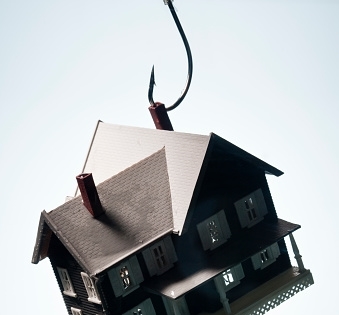Hooked on bait pricing
Hooked on bait pricing
Hooked on bait pricing
Avoid being snagged by the price quote
The search for a new family home can be a lengthy, gruelling process. Even more so when it comes to interpreting the rubbery prices agents quote to buyers in the lead up to the auction. Many a buyer has been to an auction recently in the hope that their property search is about to end with the impending purchase. Hearts are broken when the opening bid is well above the buyer’s maximum price. Even more confusing, the opening bid is also well above what the agent quoted during the opening inspection.
What is really happening in these (very common) instances? Is the market really that strong that a property the agent thought would sell for between $900, 000 and $1,000,000, can then achieve an opening bid of $1,050,000? When the 10 registered bidders have finished slugging it out and the property sells for $1,145,000, did the owner really get 20% above what they were hoping for? The answer is no. The answer is the buyers were attracted to the property by false price quotes, or “bait pricing”. This scenario played out on the sale of a property in Abbotsford recently. But it is far from a one off. It is a deliberate tactic to attract multiple bidders to an auction. Each Saturday, buyers get their hearts broken and their wallets walloped as they swallow the bait price the agent quotes as the expected selling price.
Motive behind bait pricing
Why do agents bait price? Well, that is the same as asking, how do you have an auction with one buyer? The auction system needs multiple bidders to fuel the spectacle. Now that dummy bidding has been outlawed, agents have turned to bait pricing to ensure they have multiple people bidding at the auction.
Buyers can probably accept isolated instances of a property exceeding everyone’s expectations. But to see it happen every weekend over the course of their respective property search makes even the most forgiving buyer a tad cynical.
Peter O’Malley of Harris Partners in Balmain NSW told Real Estate News that “Buyers need to remain conscious that the auction system uses under-bidders as cannon-fodder in order for the agent to get the property sold.”
“To have 10 potential parties spend up to $1000 each on inspection, solicitors and searches, when only one buyer will secure the property is a gross inefficiency at the buyers expense.”
When fronted by angry under-bidders, the agents have a long list of “plausible” excuses, sorry reasons as to the anomaly. The same reasons they roll out weekly in defence of the “outstanding result they managed to achieve.” They tell heartbroken under-bidders that the market is rising, it sold above reserve, we are shocked by the price too, we cannot be blamed for getting a good price, it is market forces at work.
Peter added, “The most blatant example of bait pricing is when a property is passed in for more than the agent quoted to buyers. This is an extreme but common example of bait pricing. In such instances, all under-bidders should demand a refund from the agent on any expenses and/or report the incident to the Department of Fair Trade.”
2 Questions
The crux of the bait pricing issues comes down to 2 questions. What price did the agent tell the owner to expect for the property? Secondly, what price did the agent tell interested buyers at the open inspection? In many cases, the price the agent tells the prospective buyers is far lower than the price they told the homeowner when they were competing for the listing.
An agent that constantly tells buyers they have no idea what a property is likely to sell for, are lying. This is the akin to the agent saying to every prospective home-seller, “I have no idea what your home is likely to sell, but pick me as your agent because I know the market really well.”
If a seller knowingly allows the agent to market their home at a price point that the owner would not accept, they are as guilty as the agent of bait pricing.
Property sellers should also be aware that bait pricing usually attracts buyers who cannot afford your property. Why attract 10 people to an auction if 9 cannot afford it? Sure, the bidding may look ferocious and spirited to the casual observer, but the bidding is all happening below the seller’s reserve price.
It would be fairer for the buyers and more prudent for the sellers to disclose the reserve price from day 1 of marketing. That way only buyers who can afford to pay the sellers price will bid.
Protection for buyers
The best way to protect yourself against bait pricing is to disregard everything the agent tells you and do your own research. Believe nothing, check everything. If the price the agent is quoting seems too good to be true, you are probably right.
The Home Price Guide website offers excellent data on recent sales. Purchase a copy of the recent sales in your target suburb. It will be more than worth the investment. Compare what homes similar to the one you are inspecting have sold for. Ask agents in the area that do not have the listing what they expect the property to sell for.
Make an offer prior to auction and send he vendor’s solicitor a copy of your offer at the same time as you give it to the selling agent. Put the agents price quote on the record. Point out in your letter of offer what your offered amount is in relation to the quoted price given at the open inspection by the agent.
If this is the home for you, make your best offer prior to auction, with a sub-clause advising that you will not be in attendance nor bidding at the auction. If your highest offer is not acceptable to the owner a week out from the auction, it probably won’t be accepted at the auction. Emotionally, you are better off being disappointed about having your best offer declined in privacy as opposed to being in front of 100 real estate spectators on auction day.
Don’t worry about playing your hand by offering your best price prior to auction. If you are an under-bidder at auction, you will have disclosed your best price, spent money and still missed out on the property.
If your offer prior to auction is above the agent’s price quote and is still declined, at least you know the agent is bait pricing. Candice and her husband were recently interested in buying an unrenovated property listed for auction in Birchgrove. The agent quoted around $1.2 million as the expected selling price. When Candice offered $1.2 million the offer was declined because it was too low. By making the offer prior to auction, it flushed out the fact the agent was bait pricing to lure agents along to the auction. The property went on to sell at the auction for $1,405,000, with half a dozen people bidding whom were never in the hunt.
On the day of the auction, if the bidding does happen to stop below what you offered a week prior to auction, the agent is likely to pass the property in and come back to you anyway. Very rarely will they sell under the hammer at auction for less than they were offered prior to auction.
There you have it, make your best offer prior to auction and walk away if it is declined by the owner. What have you got to lose? Thousands of dollars in unnecessary fees if you get hooked by the bait price.
Peter O’Malley



